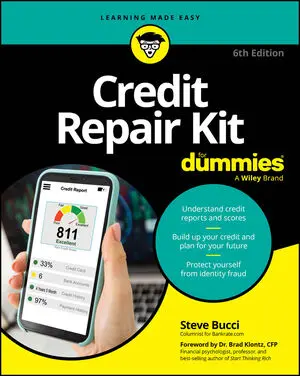Your credit report presents a financial snapshot of your life…so far. As your life changes, your credit report changes, too. If your life is filled with positives like a steady job, a good income, controlled expenses, and maybe even a partner, then your credit report should reflect that stability. If you have a reversal of fortune with a job loss and other eventualities, expect your credit to reflect that also.
How to establish credit for the first time
Getting credit doesn’t need to be scary. You have easy ways to establish credit for the first time — or the second time around as a newly single person. Knowing what to do and what to avoid makes this process simple and foolproof.
Using simple techniques like borrowing your own money and using retail store cards and authorized user accounts, you can establish good credit in no time. Your credit score can be figured on a history of just a month or two, and then you’re on your way.
Here are a few ways to build credit for the first time:
Open a savings account at a bank that reports to all three credit bureaus. Then take out a loan using the account as security and make monthly payments on time.
Have a relative add you as an authorized user on his or her credit card. Your relative’s history will flow onto your credit report.
Apply for a secured credit card with a bank that reports monthly to all three bureaus.
Make credit changes at life’s stages
As you move through life, you find new needs for credit and encounter new challenges in keeping your credit strong when life gets bumpy. Credit plays a strong role in every aspect of life, including getting a job, buying a home or renting an apartment, purchasing a car, insuring your home and car, getting married or divorced, paying medical bills, planning for retirement and end-of-life expenses, and more!
Many people know that because a prospective employer may check your credit in the hiring process, having good credit while job hunting is important. But how can you keep your credit in good shape when you’ve been laid off and don’t have enough income to handle all your bills? There are ways to safeguard your credit before, during, and after a divorce.
Avoid pitfalls
Whether you’re new to credit or you’re a credit veteran, you need to be careful of counterproductive actions. Some examples of things you should avoid if at all possible are payday lenders, refund-anticipation loans, check cashers, and credit repair companies.
You won’t go blind from using a payday lender once for an emergency, but the very concept of this type of high-interest loan is flawed. If you have no savings, you’re living paycheck to paycheck, and an emergency expense comes up, does getting a payday loan make sense?
You have to pay back a short-term (two weeks or so) loan on your next payday. But all that money is already committed, so how can you pay it back? Chances are you’ll need more than one loan and end up owing lots of money in interest charges.
Refund-anticipation loans are another potentially counterproductive borrowing product. These loans accelerate an e-filed tax refund by a very short period for a very large fee when calculated as an annual percentage rate (APR). Plus, if your refund is held up or reduced, you owe more money on the loan than you expected.
Check cashers perform a valid but expensive function for people with no bank accounts who need to cash checks. Get a bank account so you have a place to begin saving and stop paying for unnecessary check cashing.
Credit repair companies have a horrid reputation. Legislation called the Credit Repair Organizations Act has tried to limit the damage caused by fraudulent actions that some companies advise to rig the credit-reporting system. If you’re thinking of credit repair companies, think again.
Debt settlers can put you into an adversarial process in which you can get caught in the middle of a financial and legal tug-of-war with potentially devastating consequences.






